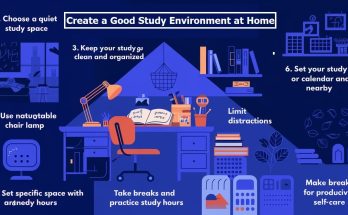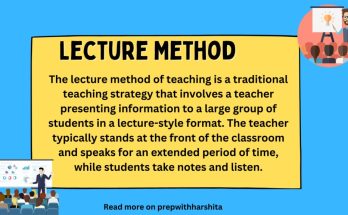Learning a new skill can be an exciting and rewarding experience. Whether you’re aiming to boost your career prospects, explore a personal interest, or simply challenge yourself, acquiring a new skill can offer numerous benefits. However, many people often feel overwhelmed by the thought of learning something new, especially when they’re on a tight timeline. The good news is that with the right approach, it’s entirely possible to learn a new skill in just 30 days.
In this article, we’ll explore practical strategies to help you successfully learn a new skill within a month, ensuring you stay motivated, focused, and on track throughout the process.
1. Set Clear and Specific Goals
Before diving into the process of learning, it’s essential to have a clear understanding of what you want to achieve. Simply saying, “I want to learn how to play the guitar” or “I want to improve my coding skills” is too vague. Instead, break down your goal into a specific, measurable outcome.
For example, if you’re learning guitar, your goal could be: “I want to play my first song on the guitar within 30 days.” If you’re learning coding, you might set a goal like: “I want to build a simple website using HTML and CSS within a month.”
Setting specific goals gives you a roadmap for your learning journey and provides a sense of direction, making it easier to measure progress along the way. Moreover, having a clear outcome helps maintain motivation by allowing you to focus on the end result.
2. Break Down the Skill Into Smaller Steps
Learning a new skill can be overwhelming if you try to tackle it all at once. To make the process more manageable, break the skill down into smaller, more achievable components. For example, if you’re learning a new language, start with basic vocabulary, then move on to sentence structure, and finally, work on speaking and listening practice.
Dividing the skill into smaller chunks makes the learning process feel less daunting and allows you to focus on one thing at a time. It also gives you a sense of accomplishment as you complete each step, keeping you motivated to continue.
3. Dedicate Time Each Day to Practice
To make the most of your 30-day learning challenge, it’s important to practice consistently. Dedicate a specific amount of time each day to learning and practicing your new skill. Even 30 minutes to an hour of focused practice can make a significant difference over the course of a month.
Create a daily routine that incorporates your practice sessions. Whether it’s in the morning, during your lunch break, or in the evening, having a set time each day to practice ensures that learning becomes a habit. Consistency is key, and the more you practice, the faster you’ll see progress.
4. Use the 80/20 Rule
The Pareto Principle, also known as the 80/20 rule, suggests that 80% of your results come from 20% of your efforts. When learning a new skill, this principle can be incredibly helpful. Instead of trying to master every single aspect of the skill, focus on the most important and impactful elements that will yield the greatest results.
For example, if you’re learning a language, focus on the most common words and phrases used in daily conversations rather than trying to memorize a large vocabulary list. If you’re learning to play an instrument, focus on mastering a few key chords or techniques that will allow you to play a variety of songs. By focusing on the 20% that will give you the most value, you can make faster progress and feel more accomplished.
5. Track Your Progress
Tracking your progress is crucial to staying motivated and ensuring that you’re on the right path. Keeping a journal or using a learning app to monitor your daily practice and improvements helps you see how far you’ve come, which can be incredibly motivating.
Take a few minutes at the end of each day to reflect on what you’ve learned and what areas still need improvement. This will help you stay focused and identify any obstacles that might be hindering your progress. Celebrating small wins along the way also boosts your confidence and encourages you to continue pushing forward.
6. Embrace Failure and Learn from Mistakes
One of the most important lessons when learning a new skill is to embrace failure and learn from mistakes. It’s natural to make errors along the way, but instead of getting discouraged, view them as opportunities for growth. Each mistake teaches you something valuable and brings you closer to mastering the skill.
Don’t be afraid to make mistakes, and don’t expect perfection. The more you practice and experiment, the more you’ll learn and improve. Remember, learning is a process, and it’s okay to take a step back, assess what went wrong, and adjust your approach accordingly.
7. Seek Feedback and Guidance
While self-study is important, seeking feedback from experts or experienced individuals can accelerate your learning process. Whether it’s a mentor, an online course instructor, or even a community of learners, receiving constructive feedback can help you identify areas for improvement and refine your technique.
Don’t hesitate to ask for help when needed. Getting advice from others who have already mastered the skill can provide valuable insights and save you from making unnecessary mistakes. Online forums, social media groups, and local meetups are great places to connect with others who are learning similar skills.
8. Stay Positive and Be Patient
Learning a new skill in 30 days can be challenging, and there will likely be times when you feel frustrated or discouraged. However, maintaining a positive mindset and being patient with yourself is essential for long-term success.
Focus on the progress you’ve made, rather than fixating on what you haven’t accomplished yet. Remember that learning is a marathon, not a sprint. Celebrate small victories and remind yourself why you embarked on this learning journey in the first place.
9. Keep the End Goal in Mind
Throughout your 30-day learning challenge, keep your end goal in mind. Whether it’s playing a song, building a project, or acquiring a new professional skill, visualizing the outcome can help keep you motivated.
Create a vision board, write down your goals, or tell someone about your progress. By reminding yourself of the bigger picture, you can stay focused and push through any obstacles that arise.
Conclusion
Learning a new skill in 30 days is an achievable and rewarding goal if you approach it with a clear plan and consistent effort. By setting specific goals, breaking the skill into manageable steps, practicing daily, and tracking your progress, you can make significant strides in mastering a new ability. Remember to stay patient, embrace failure as part of the process, and seek feedback when needed.
With determination and a positive mindset, you can make the most of your 30-day learning challenge and emerge with a new skill that will benefit you for years to come.




